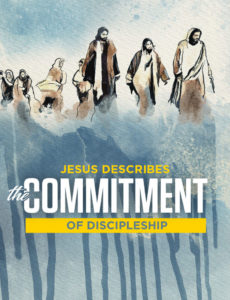…the husband of one wife…
Titus 1:6b…the husband of one wife…
1 Timothy 3:2b
Lance Quinn explains that “…this English translation comes from the Greek phrase mias gunaikos andra, which when literally translated means a one-woman man, or one-wife husband.”1
Strauch further explains, “…the phrase the husband of one wife is meant to be a positive statement that expresses faithful, monogamous marriage. In English we would say, faithful and true to one woman or a one-woman man. … Negatively, the phrase prohibits all deviation from faithful, monogamous marriage. Thus, it would prohibit an elder from polygamy, concubinage, homosexuality, and/or any questionable sexual relationship. Positively, Scripture says the candidate for eldership should be a ‘one-woman man,’ meaning he has an exclusive relationship with one woman. Such a man is above reproach in his sexual and marital life.”2
It is vitally important for those who are in the office of elder to be an example in their marriage. Ephesians 5 paints a vivid picture of how important it is for a husband to love his wife “just as Christ loved the church and gave Himself up for her.” The husband’s testimony in this regard is a living picture of how much Christ loved the church. His love is also a reflection of the faithfulness of God.
On a side note, it is important to understand that Christian men must always be growing in their sacrificial love for their wives. We never fully attain such love in this life. Our love is often conditional and we can fall into the trap of assuming that reciprocal love is the same as sacrificial love.
The magnificence of Christ’s love was demonstrated in how He loved us when we were His enemies!
But God demonstrates His own love toward us, in that while we were yet sinners, Christ died for us.
Romans 5:8For if while we were enemies we were reconciled to God through the death of His Son, much more, having been reconciled, we shall be saved by His life.
Romans 5:10
There are questions church leaders must answer that are beyond the scope of this brief article. Does this mean an elder must be married? Is it possible for a man to have a divorce in his past when he was a non-Christian? How about if he was a Christian? The qualification of being “above reproach” will have to be considered with these last two questions.
1 Quinn, Lance, Grace to You QA517, Jul 10, 2009
2 Strauch, Alexander, Biblical Eldership, 192


